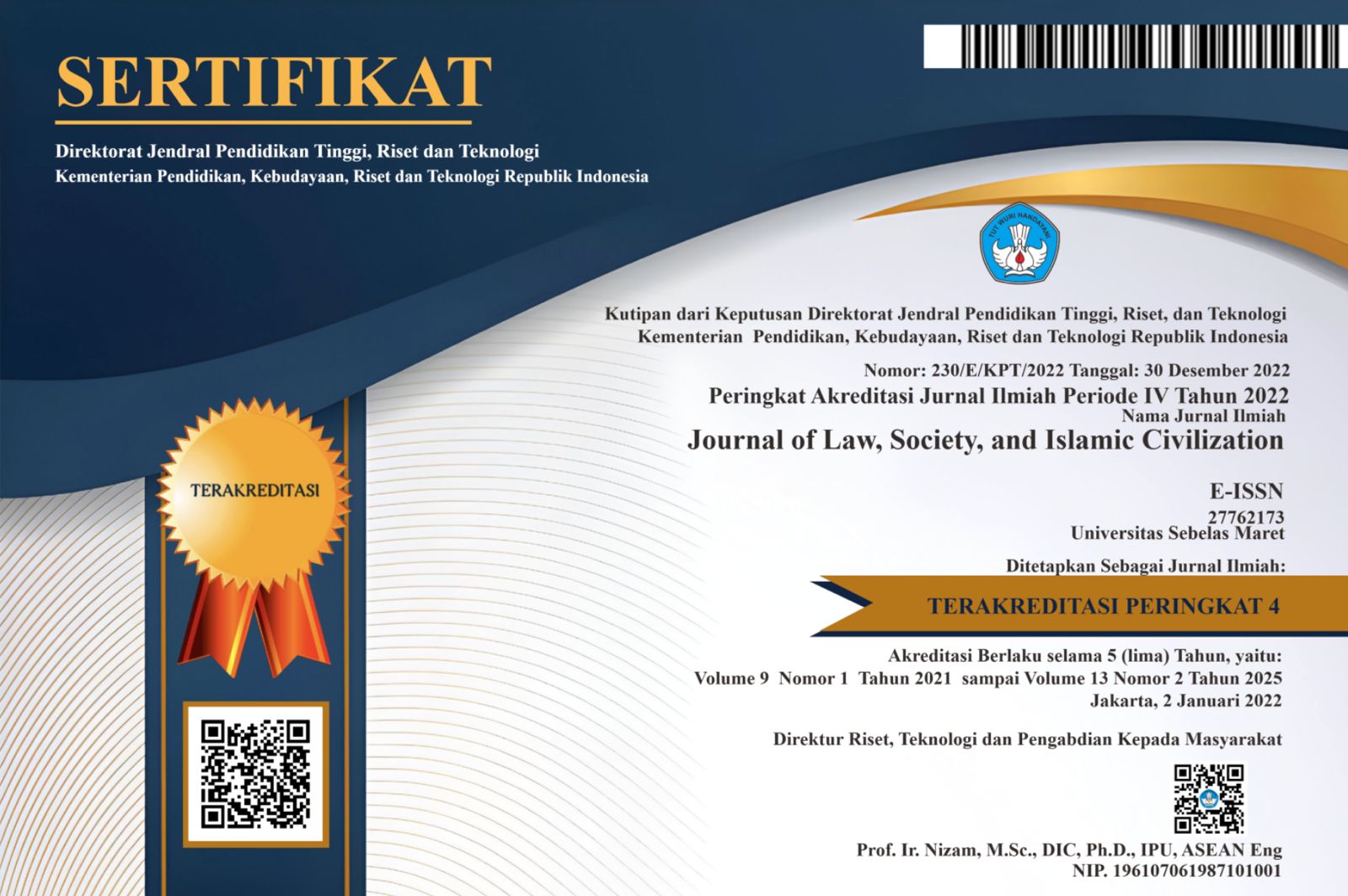Dialektika Pengangkatan Menteri Perspektif Al Mawardi dan Ibn Khaldun
Abstract
Keywords
Full Text:
PDFReferences
Al Haq, I. A., & Rohmah, S. N. (2021). Korelasi Konsep Kementerian (Wizarah) Menurut Imam Al-Mawardi dan Implementasinya Di Kementerian Indonesia. Mizan: Journal of Islamic Law, 5(2), 261.
Al-Mawardi, I. (2017). Ahkam Sulthaniyah: Sistem Pemerintahan Khilafah Islam (2 ed.). Jakarta: Qhisti Press.
Ishom, M. (2016). Nasehat Al-Mawardi Untuk Menterimenteri Pembantu Kepala Negara: Studi Kitab Adab Al-Wazir. al Qisthâs; Jurnal Hukum dan Politik, 7(1), 1–14.
Ismail, R. R., & Setiawan, A. (2022). Corak Sistem Pemerintahan Negara Republik Indonesia Pasca Amandemen Undang-Undang Dasar Negara Republik Indonesia 1945. Jatijajar Law Review, 1(1), 70-85.
Kamma, H., Mahrida, Rohman, J., Mustofa, H., & Muhammadong. (2023). Fiqh Siyasah Simpul Politik Islam dalam Membentuk Negara Madani (1 ed.). Solok: Mafy Media Literasi Indonesia.
Paryadi, D. (2018). Pengawasan E Commerce Dalam Undang-Undang Perdagangan Dan Undang-Undang Perlindungan Konsumen. Jurnal Hukum & Pembangunan, 48(3), 651-669.
Samsinas. (2009). Ibnu Khaldun: Kajian Tokoh Sejarah Dan Ilmu-Ilmu Sosial. Jurnal Hunafa, 6(3), 329–346.
Saputri, F. I., & Rizal, M. C. (2022). Studi Pemikiran Ketatanegaraan Imam al-Mawardi. Verfassung: Jurnal Hukum Tata Negara, 1(1), 15–32.
Siswanto, M. (2022). Fatwa-Fatwa Hukum Keluarga Majelis Ulama Indonesia Tahun 1975-2012 Dalam Perspektif Maqashid Al-Syari’ah. Hukum Islam, 21(2), 205-235.
Sulfan, S., & Mukhsin, M. (2022). Filsafat Politik Menurut Ibnu Khaldun. Jurnal Tana Mana, 2(2), 103–114.
Suryana, C., Fathurrahman, & Aula, L. (2022). Legislatif Dalam Perspektif Mahasiswa (Cet 1). Bandung: Fakultas Dakwah dan Komunikasi UIN Sunan Gunung Djati Bandung.
Sutisna, S., Prasetya, E. E., & Yono, Y. (2021). Kepemimpinan Non-Muslim Dalam Perspektif Imam Al-Mawardi (Kajian Literatur Kitab Al-Ahkam As-Sulthaniyyah). DIKTUM: Jurnal Syariah dan Hukum, 19(1), 43–56.
Winata, M. R., & Musais, I. H. (2021). Menggagas Formulasi Badan Regulasi Nasional Sebagai Solusi Reformasi Regulasi Di Indonesia. Jurnal Rechts Vinding: Media Pembinaan Hukum Nasional, 10(2), 303-321.
Zubair, N. F., & Syafi’i, I. (2022). Sistem Pendidikan Islam Menurut Pandangan Ideal Ibnu Khaldun: Implikasinya terhadap Corak Pendidikan Islam Kontemporer. TARBAWI, 10(2), 117–130.Refbacks
- There are currently no refbacks.












